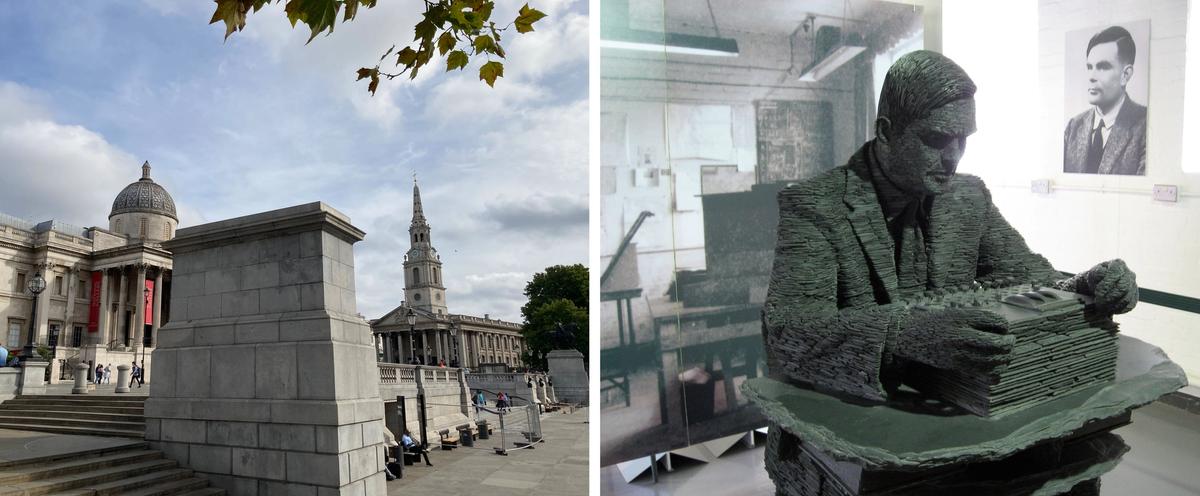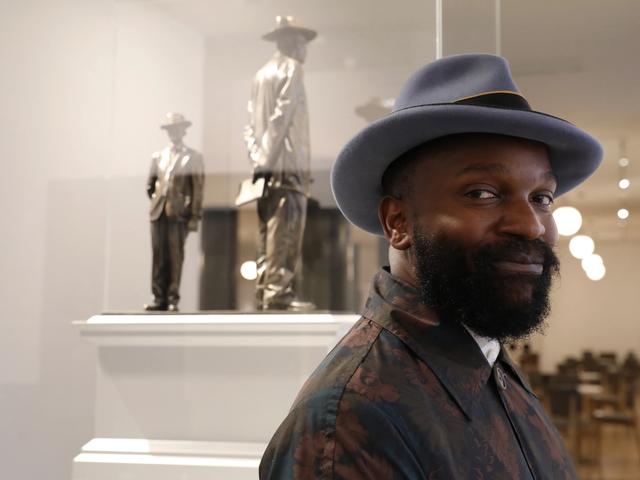A British government minister has proposed erecting a statue of the Second World War code-breaker Alan Turing on the Fourth Plinth in Trafalgar Square, London, a high-profile platform for contemporary art commissions in recent years.
Ben Wallace, the secretary of state for Defence, made the suggestion in the House of Commons earlier this week in response to an independent review focused on the experience of LGBTQ veterans who served between 1967 and 2000 while homosexuality in the military was illegal.
Wallace: “If I think what the plinth at… [Trafalgar Square] should be full of, the blank plinth, (with) the mayor’s gimmicks or whatever it is every other five minutes, it should be Dr Turing.” Wallace actually mentioned Parliament Square though commentators say he is referring to the Trafalgar Square site.
A wartime hero, Turing successfully decoded German messages with the Bombe, his machine designed to break Enigma-enciphered messages. But, after being disgraced by a conviction for “gross indecency” for homosexuality in 1952 and an enforced chemical castration, Turing is thought to have committed suicide in 1954.
Wallace added: “Dr Turing was probably the greatest war hero, in my book, of the Second World War. His achievements shortened the war, saved thousands of lives, helped defeat the Nazis. And his story is a sad story of a society and how it treated him.”
However according to Pink News, Wallace voted against introducing same-sex marriage in England and Wales in 2013. The following year, he voted against extending marriage rights to members of the armed forces outside the UK.
Contributors on social media welcomed Wallace’s proposal with one Twitter commentator saying: “The way he [Turing] was treated for being gay is devastating. He was remarkable.” A petition calling for an effigy of Turing to be placed in Trafalgar Square was launched in 2012; it attracted 57 signatures.
Meanwhile the debate about whether the plinth should be used for a statue of the late Queen Elizabeth II continues. It had been widely understood that the plinth—which was left empty when Trafalgar Square was created—was reserved for an equestrian statue of the Queen after her death.
The Fourth Plinth programme was initiated in 1998 by the RSA (the Royal Society for arts, manufactures and commerce) with the support of the Cass Sculpture Foundation. Thirteen artists including Yinka Shonibare, Rachel Whiteread and Mark Wallinger have shown works on the plinth since the contemporary art initiative was launched in 1999. Samson Kambalu’s sculpture Antelope, depicting John Chilembwe who died fighting British rule, is due to remain in place until 2024.
Antelope is due to stay in situ until 2024, followed by 50 Improntas (850 Imprints) by Teresa Margolles, which will feature casts of the faces of 850 trans people from London and around the world presented in a form inspired by Mesoamerican sculptures.
A spokesperson for the Greater London Authority (GLA), which is responsible for the Fourth Plinth, says: "The Fourth Plinth is one of the world’s most renowned sculpture prizes and continues to provide an important platform for artists... the programme was started in 1998 and there are no plans for it to change.”



